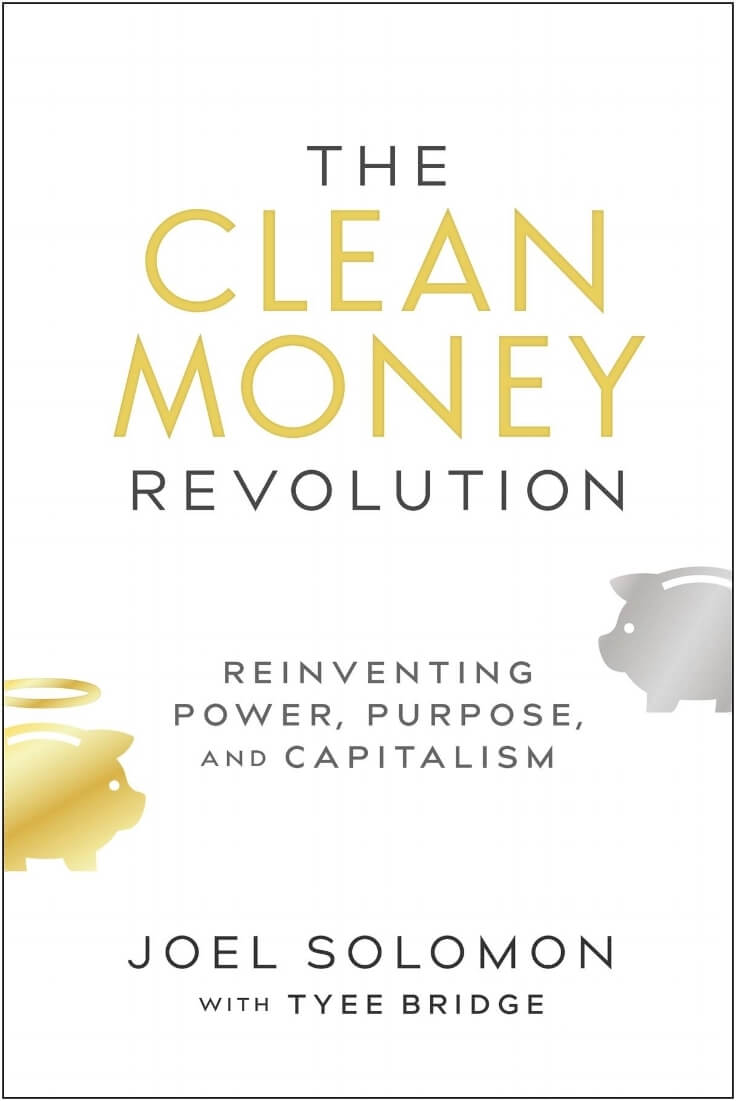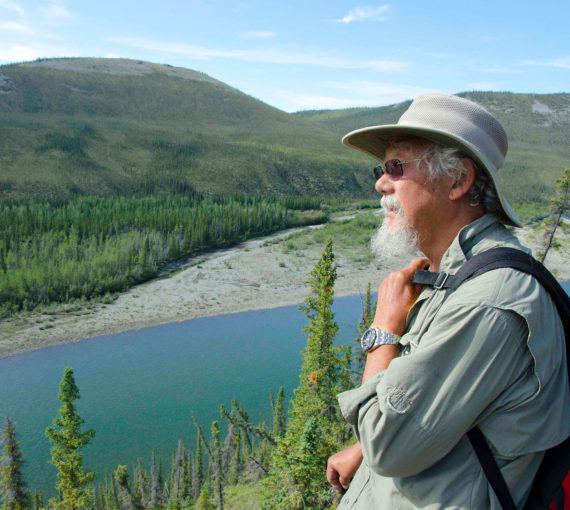
The Clean Money Revolution: Reinventing Power, Purpose and Capitalism by Joel Solomon with Tyee Bridge
“Put your money where your ethics are.” For many people, that’s asking a lot. Most of us invest money to survive, educate our children or get us through retirement. For many people it’s more important that the money is growing than that it’s “clean.” Just make me a nice big sausage – don’t show me what went into it.
Vancouver-based social venture capitalist Joel Solomon takes aim at the flawed morality of that stance in his new book (co-written with Tyee Bridge), The Clean Money Revolution: Reinventing Power, Purpose and Capitalism.
Solomon is the Nashville-raised chairman of Renewal Funds, a $98 million “mission venture capital firm” that has invested in more than 100 early-stage companies in North America aligned with social and environmental change. He’s also a founding member of the Social Venture Network, Business for Social Responsibility and Tides Canada and is board chairman of Hollyhock and a senior adviser to RSF Social Finance in San Francisco.
His book is part memoir, part call to action and part dissertation on clean investing, built around the theme of being a worthy ancestor. It starts with challenging each of us to take responsibility for the money we spend and invest.
“Money is a form of energy,” he says. “Money should help quicken our evolution toward a truly secure world, where ecosystems are protected and safe food, shelter, health care, education, work and support for those in need are readily available.”
Money should help quicken our evolution toward a truly secure world, where ecosystems are protected and safe food, shelter, health care, education, work and support for those in need are readily available.
Joel Solomon
Solomon makes an impassioned case for “a ‘seventh-generation’ vision, where quarterly and annual results are only minor blips on a chart.”
What’s interesting about his dream of a rapid overhaul of our economy (“a moon-shot endeavour”) is the timing. He firmly believes that this whole field is about to explode. “Organic foods have gone from near zero market share to become the fastest-growing part of the entire food industry,” he notes.
According to Corporate Knights magazine, 71% of people (especially women and millennials) say they want to invest with their values but only 1% do. That’s because they think value-based investments will make less money, or they don’t know how or they think there aren’t investment options available.
That may all be changing as we perch on the verge of the oft quoted $30-trillion-to-$40-trillion-or-so intergenerational handoff in North America alone from the boomers to the millennials. The recipients, this time, might be different: a change-ready demographic spooked by climate change and environmental collapses.
Genus Capital’s website quotes a Morgan Stanley report that 84% of active millennial investors say they are interested in “sustainable investing” (compared with 79% of gen-Xers and 66% of baby boomers), and nearly one-third of young (U.S.) investors have already reviewed their portfolios for non-financial issues.
Vancouver-based Genus was encouraged by Renewal Funds to hasten its advances into socially responsible investments, as was Michael Jantzi’s ethical screening of Toronto Stock Exchange-listed companies. By 2015 Genus had built one of Canada’s first “fossil-fuel-free” investment funds.
The results? According to Genus partner Wayne Wachell: “We don’t need hydrocarbons to get results. We don’t see greater returns for integrating ESG (environmental/social/governance) scores, but we do see lower risk.”
So does Moody’s Investors Service. It issued Oil and Gas Industry Faces Significant Credit Risks from Carbon Transition, an April 2017 report based on the expected impact of the Paris Agreement on climate change and reduced combustion of oil and gas.
Thanks in no small part to Solomon, his partner Carol Newell and the many kindred spirits described in his book, there now are myriad investment opportunities for ethical investors and constantly improving rating systems. And thanks to rapidly advancing technology, there are also new ways to invest through crowd-funding, new ways to monitor personal investments and accessible information about local investment options.
Solomon’s No.1 piece of advice: “Don’t just put your head in the sand and hand your money over to destructive uses.nWe have to re-own responsibility for our own money. At any moment, my money is doing something, someplace, with and to someone.” There’s no excuse for talking clean and acting dirty anymore.
This article was originally published in Business in Vancouver and has been reprinted with permission. Read the article.


